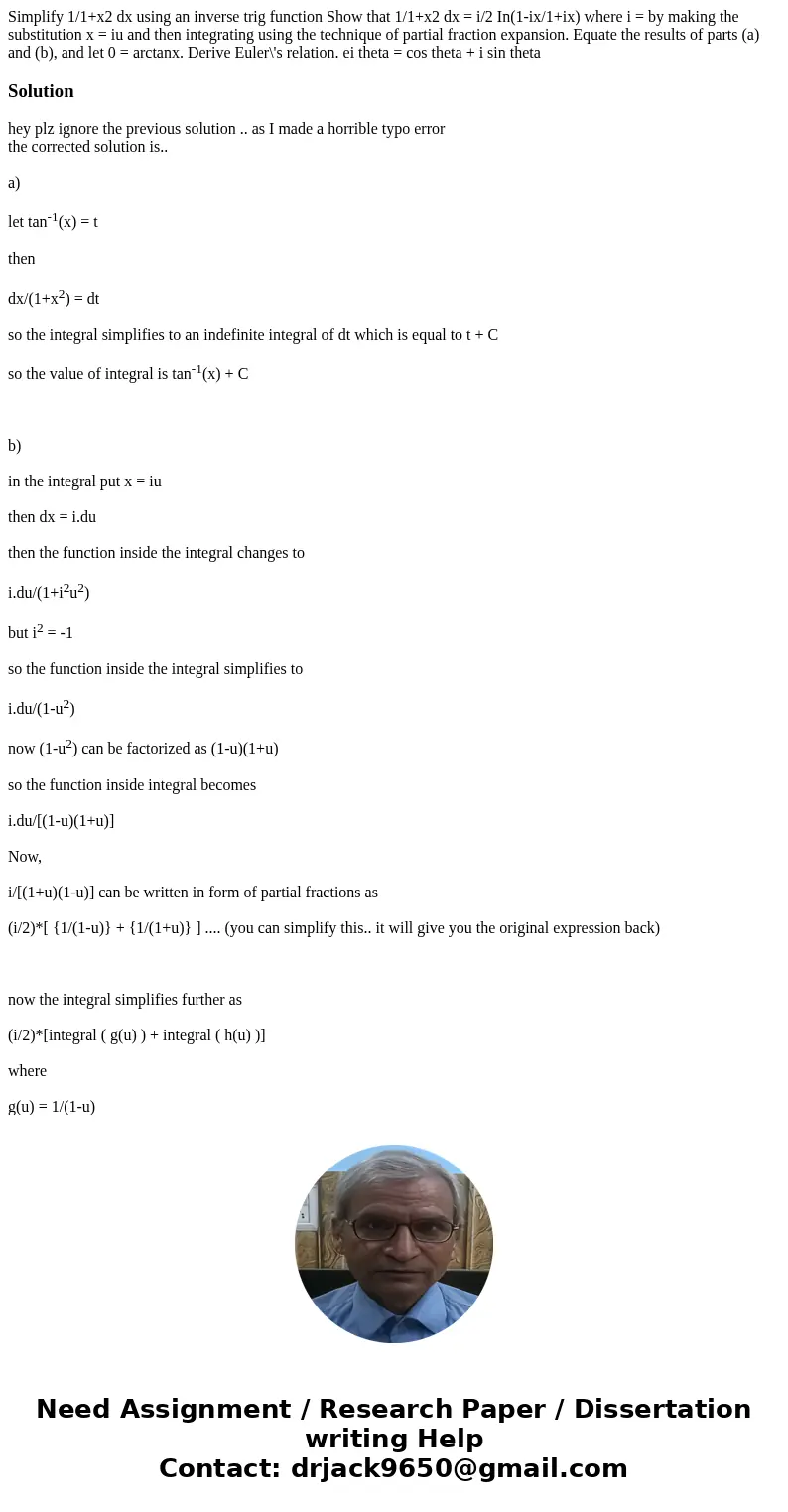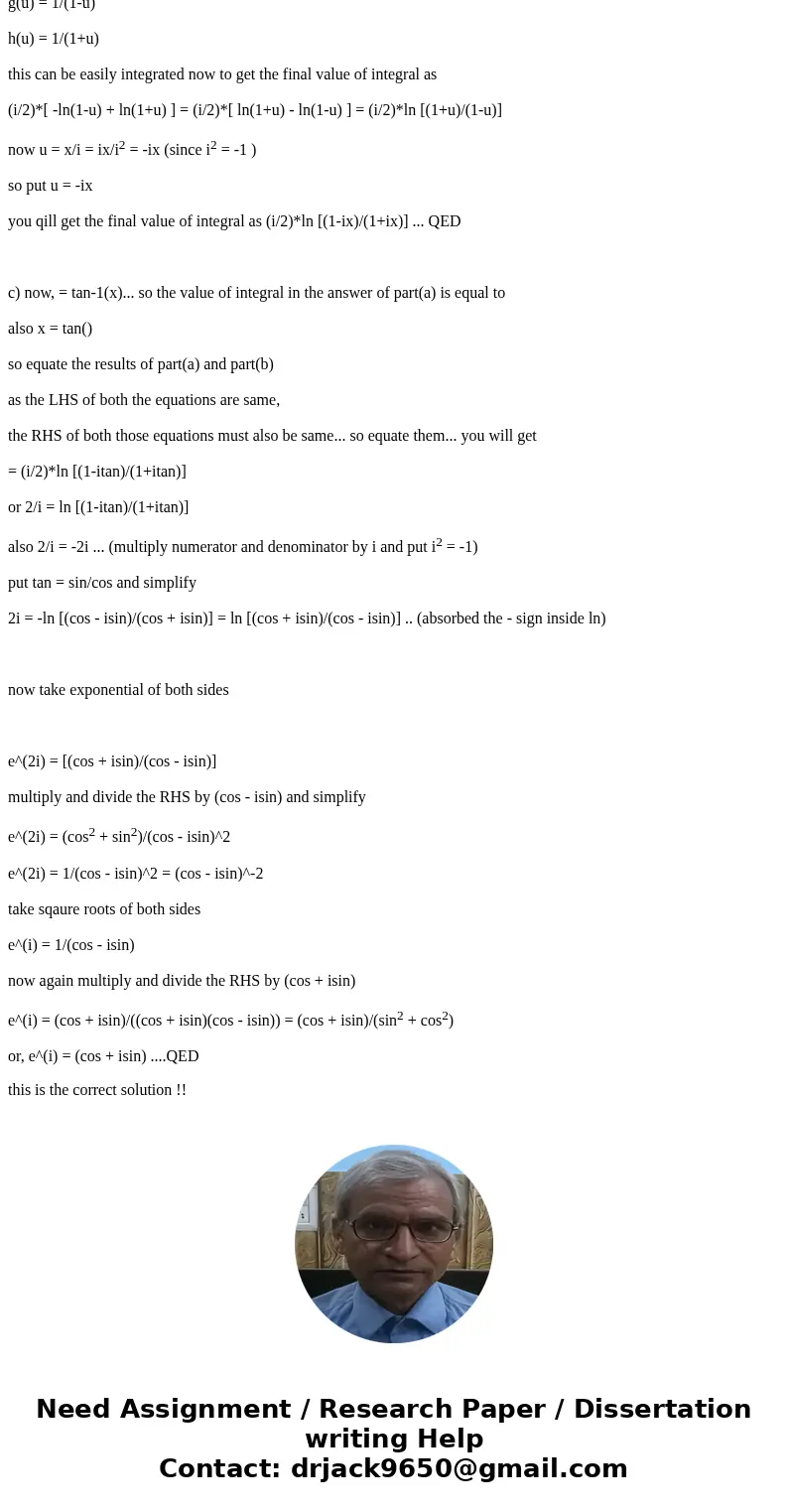Simplify 11x2 dx using an inverse trig function Show that 11
Solution
hey plz ignore the previous solution .. as I made a horrible typo error
the corrected solution is..
a)
let tan-1(x) = t
then
dx/(1+x2) = dt
so the integral simplifies to an indefinite integral of dt which is equal to t + C
so the value of integral is tan-1(x) + C
b)
in the integral put x = iu
then dx = i.du
then the function inside the integral changes to
i.du/(1+i2u2)
but i2 = -1
so the function inside the integral simplifies to
i.du/(1-u2)
now (1-u2) can be factorized as (1-u)(1+u)
so the function inside integral becomes
i.du/[(1-u)(1+u)]
Now,
i/[(1+u)(1-u)] can be written in form of partial fractions as
(i/2)*[ {1/(1-u)} + {1/(1+u)} ] .... (you can simplify this.. it will give you the original expression back)
now the integral simplifies further as
(i/2)*[integral ( g(u) ) + integral ( h(u) )]
where
g(u) = 1/(1-u)
h(u) = 1/(1+u)
this can be easily integrated now to get the final value of integral as
(i/2)*[ -ln(1-u) + ln(1+u) ] = (i/2)*[ ln(1+u) - ln(1-u) ] = (i/2)*ln [(1+u)/(1-u)]
now u = x/i = ix/i2 = -ix (since i2 = -1 )
so put u = -ix
you qill get the final value of integral as (i/2)*ln [(1-ix)/(1+ix)] ... QED
c) now, = tan-1(x)... so the value of integral in the answer of part(a) is equal to
also x = tan()
so equate the results of part(a) and part(b)
as the LHS of both the equations are same,
the RHS of both those equations must also be same... so equate them... you will get
= (i/2)*ln [(1-itan)/(1+itan)]
or 2/i = ln [(1-itan)/(1+itan)]
also 2/i = -2i ... (multiply numerator and denominator by i and put i2 = -1)
put tan = sin/cos and simplify
2i = -ln [(cos - isin)/(cos + isin)] = ln [(cos + isin)/(cos - isin)] .. (absorbed the - sign inside ln)
now take exponential of both sides
e^(2i) = [(cos + isin)/(cos - isin)]
multiply and divide the RHS by (cos - isin) and simplify
e^(2i) = (cos2 + sin2)/(cos - isin)^2
e^(2i) = 1/(cos - isin)^2 = (cos - isin)^-2
take sqaure roots of both sides
e^(i) = 1/(cos - isin)
now again multiply and divide the RHS by (cos + isin)
e^(i) = (cos + isin)/((cos + isin)(cos - isin)) = (cos + isin)/(sin2 + cos2)
or, e^(i) = (cos + isin) ....QED
this is the correct solution !!


 Homework Sourse
Homework Sourse